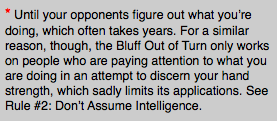Lately, watching the Democratic senatorial caucus has been like watching your toddler take his first few tentative steps forward, only to see the cat, shriek in terror and sit down until someone tells him what to do. Yesterday, the Senate voted 56 to 43 to begin debate on the Pentagon spending bill that would have ended Don’t Ask Don’t Tell. If you’ve been unfamiliar with the last two years of Senate proceedings, 56 to 43 is a loss. Because of the threat of filibuster, Democrats need 60 votes to win anything, whereas the Republicans need 41. Never mind that the filibuster hasn’t actually been used since the Democrats won the Presidency and both houses of Congress. Republican senators might do it, and that’s why Democrats scrambled and compromised to get 60 votes to pass health care, 60 votes to pass financial reform, 60 votes to pass anything more significant than a renewal of Flag Day. So, having won the vote to move forward with a plan to repeal DADT supported by the President, the Secretary of Defense and the chairman of the Join Chiefs of Staff, Democrats in the Senate conceded defeat.
In poker, we call this phenomenon the Bluff Out of Turn. Often, when a player acting ahead of you seems about to make a small bet that you wouldn’t like, you can dissuade him by picking up a large stack of your own chips. He will then congratulate himself on having read you so cleverly and pass. Unlike the actual bluff, which requires a significant monetary investment, the Bluff Out of Turn can be executed in virtually every hand at no cost.*
Unlike the actual bluff, which requires a significant monetary investment, the Bluff Out of Turn can be executed in virtually every hand at no cost.*
The Republican Party has been bluffing out of turn for two years now. Depressingly, it keeps working. The threat of filibuster looms so large in Harry Reid’s mind as to turn the largest Democratic majority in decades into an ineffectual mess. It killed the public option, it nearly killed financial reform, and now it’s killed the long-overdue repeal of Don’t Ask Don’t Tell.
If DADT doesn’t strike you as quite on the order of the creation a new public health care system or consumer protection agency, you’re right. That’s exactly why Harry Reid should have taken it as an opportunity to call the GOP’s bluff.
The provision to repeal Don’t Ask Don’t Tell is part of the Pentagon appropriations bill that pays for pretty much the entire defense budget. The sight of Republican senators reading out of the phone book to obstruct funding for the entire US military so that certain members of that military can’t admit they’re gay would be a public relations disaster for the GOP.
It would force them to take bring the Senate to a standstill in defense of a social issue that has become an embarrassment to many conservatives. Before God and C-SPAN, they would have to stand up to declare themselves more concerned with prejudice than policy and willing to put a petty political victory above their vaunted concern for defense and our troops.
Thanks to Harry Reid’s cowardice, they had to do no such thing. Rather than putting forward a relatively clean defense bill with a repeal of DADT for Republicans to accept or filibuster, he promised to attach a far more controversial immigration measure and then folded when he didn’t get 60 votes. Republicans once again enjoyed the benefits of a filibuster without having to put any chips in the pot, and Harry Reid signaled that he would hold the entire bill until after the midterm elections.
If he believes the American electorate hates gay people and can’t understand anything in the news but what Fox News tells them, it’s a wise choice. From any other perspective, it’s a blunder. The time to call the GOP’s filibuster bluff is before the midterms, when they have something to lose. Once the Republican Party has put the elections behind them—and probably gained a few Senate seats in the process—they’ll be able to filibuster everything with near impunity.
As it stands, Harry Reid is either squandering his last term as a Senator through fear and inefficacy or securing another six years by not doing very much. He could have been the majority leader who stood up against conservative prejudice and Republican obstructionism, but he traded that opportunity for safety before an election. In light of such choices, one wonders why he wanted to be a Senator in the first place.





i keep hoping they have a sneaky plan, but they’re looking more and more like total wussies.
The American Senate is in the midst of an experiment in minority rule, and it looks like it is going about as well for us as it went for Poland in the 18th century.
The reason why the Republicans hated Clinton so much is because he is one Democrat who could out maneuver them. Obama, his staff, and the Senate Democrats are all in way over their heads. They’re rank amateurs.
I kind of hate the way they design these bills as a combination of policies that are meaningfully very separate. In a moral world funding appropriations should never be contingent on the viability of the DADT policy. They don’t belong on the same vote. The same thing happens in pretty much every bill congress handles, and that is why our legislative branch sucks. This situation is what causes important and obvious changes to stagnate along with the bullshit our hundreds of congressman can’t agree on.